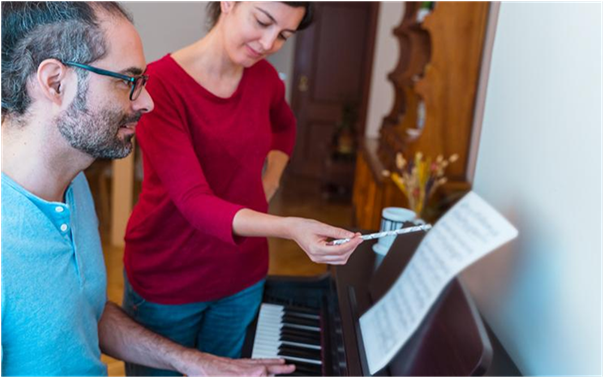Many adults want to learn to play the piano, but hesitate because of persistent myths. Ideas about age limits, hand size, or the need for natural talent can delay a first step that should feel straightforward and encouraging. A focused piano trial lesson and well-sequenced music theory lessons in Singapore remove guesswork by showing how you learn, what suits your hands, and which home routine fits your week. Below are seven myths, each paired with a clear reality that keeps momentum steady from the first session.
1. “I am too old to learn quickly”
Age changes schedules, not potential. Adult learners bring patience, focus, and strong listening skills that speed progress when lessons are structured. A short piano trial lesson lets a teacher calibrate pace, choose repertoire that fits your taste, and set a plan that builds visible wins within weeks. With consistent practice blocks, adults often learn to play the piano more efficiently than they expect.
2. “Theory will slow me down”
Theory removes confusion. When you know key signatures, chord shapes, and time values, reading becomes easier and practice becomes calmer. Targeted music theory lessons in Singapore deliver these ideas in small units tied to your pieces, so every new concept solves a problem you meet at the keyboard. Instead of slowing progress, theory reduces hesitation and prevents unlearning later.
3. “Small hands will hold me back”
The technique adapts to the player. Skilled teachers adjust fingering, redistribute notes between hands, and choose arrangements that avoid painful stretches. During a piano trial lesson, you can test bench height, wrist level, and hand shape to find a relaxed setup. Many celebrated pianists have modest hand spans; control, balance, and timing matter far more than reach for the music most adults want to play.
4. “I must master scales before I touch real pieces”
Scales are tools, not a gate. A balanced start blends short patterns, simple songs, and micro drills in one session. You learn to play the piano by making music while you build the facility. Teachers often introduce a scale only when it unlocks a passage you already enjoy. This keeps practice purposeful and ties technique to sound, which protects motivation over the long term.
5. “Sight-reading is too hard to learn as an adult”
Sight-reading improves with a method. Landmark notes, steady counting, and very short pieces build the skill in small steps. In structured music theory lessons in Singapore, you connect written rhythm to what you clap and what you then play. Ten minutes of daily reading, measured at a comfortable tempo, will lift accuracy faster than weekly long sessions that chase speed.
6. “Online videos can replace a teacher”
Self-study helps, but feedback corrects issues that videos miss. A teacher hears uneven tone, sees tension at the wrist, and notices when fingering causes avoidable slips. A piano trial lesson reveals these patterns and sets targeted fixes you can apply at home. After that, periodic coaching keeps you honest about posture, pulse, and phrasing, which shortens the path to confident pieces.
7. “Lessons must be long and expensive to work”
Effective learning values frequency over duration. Three short sessions each week can outperform one long session that leaves you tired. Many studios offer compact formats and clear practice maps that fit busy lives. If you plan warm-ups, reading, and one focused passage per sitting, you learn to play the piano with steady gains while keeping costs and time in balance.
Conclusion
Progress starts when myths fall away. Adults are not late; they are ready to learn with focus. Theory clarifies rather than complicates. Hand size does not block musical growth when technique and fingering are adapted. Reading strengthens through short, regular drills, and feedback in real time turns effort into improvements you can hear. Begin with a piano trial lesson to set posture, pacing, and repertoire. Add concise music theory lessons in Singapore that link ideas on paper to sounds under your fingers. With a simple routine and supportive teaching, you will learn to play the piano in a way that feels achievable and rewarding.
Contact Huckleberry Music School to build clear reading, relaxed technique, and a practice plan that fits your week.




